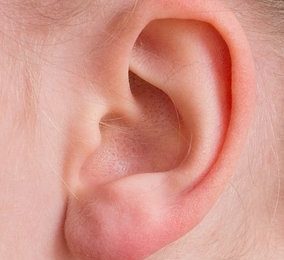Beat The Sugar Habit
World Health Organization (WHO) recommends you to limit your daily dose of sugar to fewer than 10 percent of physical calories, which equals a maximum of 10 teaspoons per day for the average adult. However, many people consume a lot more sugar than the recommendation. Sugar occurs naturally in some food and drinks, but it is also an additive in certain food and drinks. Sugar can be found in many foods, even in savory ones. Chances are, every part of your daily diet has some kind of sugar in it. From fruits, iced coffee, cupcakes, marinara sauce, to other food and drink, sugar is everywhere.
Sugar can create short-term energy in your body and Studies have shown that sugar is as addictive as cocaine. Sugar brings the release of dopamine, which many people enjoy. You keep wanting for more because your brain sees sugar as a reward. The signs of sugar addiction are the consumption of a large amount of sugary food or drinks. You may eat frequently, eat out of boredom, or become hyper and crash out. Sugar addiction can also lead to binge eating, emotional eating, and anxiety.
Health Impact
Sugar is a type of simple carbohydrate. Many types of food have sugar in it. Healthful products such as dairy products, fruit, and vegetables naturally contain sugars. However, those sugars are not bad, and you need to eat those products since they contain a range of other nutrients that are good for your health. The sugar that you need to pay attention to is added sugar, which can be found in processed foods, including cereals, soft drinks, and cakes. Added sugar, or free sugar, provides no nutritional value. Added sugar is an empty calorie, and they are not a good source of energy since your body digests them quickly. Consuming too much may cause health problems over time. Here are some medical problems that added sugar brings:
- Increase your risk of cancer
- Cause weight gain
- Increase your risk of heart and kidney disease
- Play a role in acne development
- You are more likely to develop diabetes
- Rot your teeth
- Worsen joint pain
- Make your skin age faster
- Linked to depression
- Drain your energy
- Lead to fatty liver.
Tips to Reduce Sugar Levels
You need to keep tabs on how much sugar you’re swallowing. Cutting down on sugar can be hard, but there are simple tips you can follow to make it easier.
- Cut back on table sugar, including white sugar, brown sugar, syrup, molasses, and honey. Try to reduce the usual amount of sugar you add by half on things you eat or drink regularly like coffee, tea, or pancake.
- Eat fresh fruit when you have a sudden need for sugar. Swap out your chocolate bars with apples, strawberries, watermelons, or any fruit that you like to satisfy your sugar cravings.
- Stop eating soda because they contain a high percentage of added sugar. Water is your best choice, but if you want something sweet, you can have fruit juice or smoothies.
- Substitute sugar with unsweetened applesauce in recipes. Enhance food with spices, such as ginger, nutmeg, allspice, or cinnamon, instead of sugar. You can also use extracts such as almond or vanilla.
- Added sugar appears in many surprising products. Always read the ingredient list of a product before adding anything to your shopping cart. Remember that sugar has many names and even food that is not typically sweet may have sugar in it. Choose products with the lowest percentage of added sugar.
- Limit your added sugar intake. Of course, it is hard to stop eating products with added sugar completely. You may satisfy your sweet tooth by having a donut at least once a week. But you need to watch out if you tend to eat more later on. You may want to avoid sugar as much as possible if you cannot control your sugar cravings.






